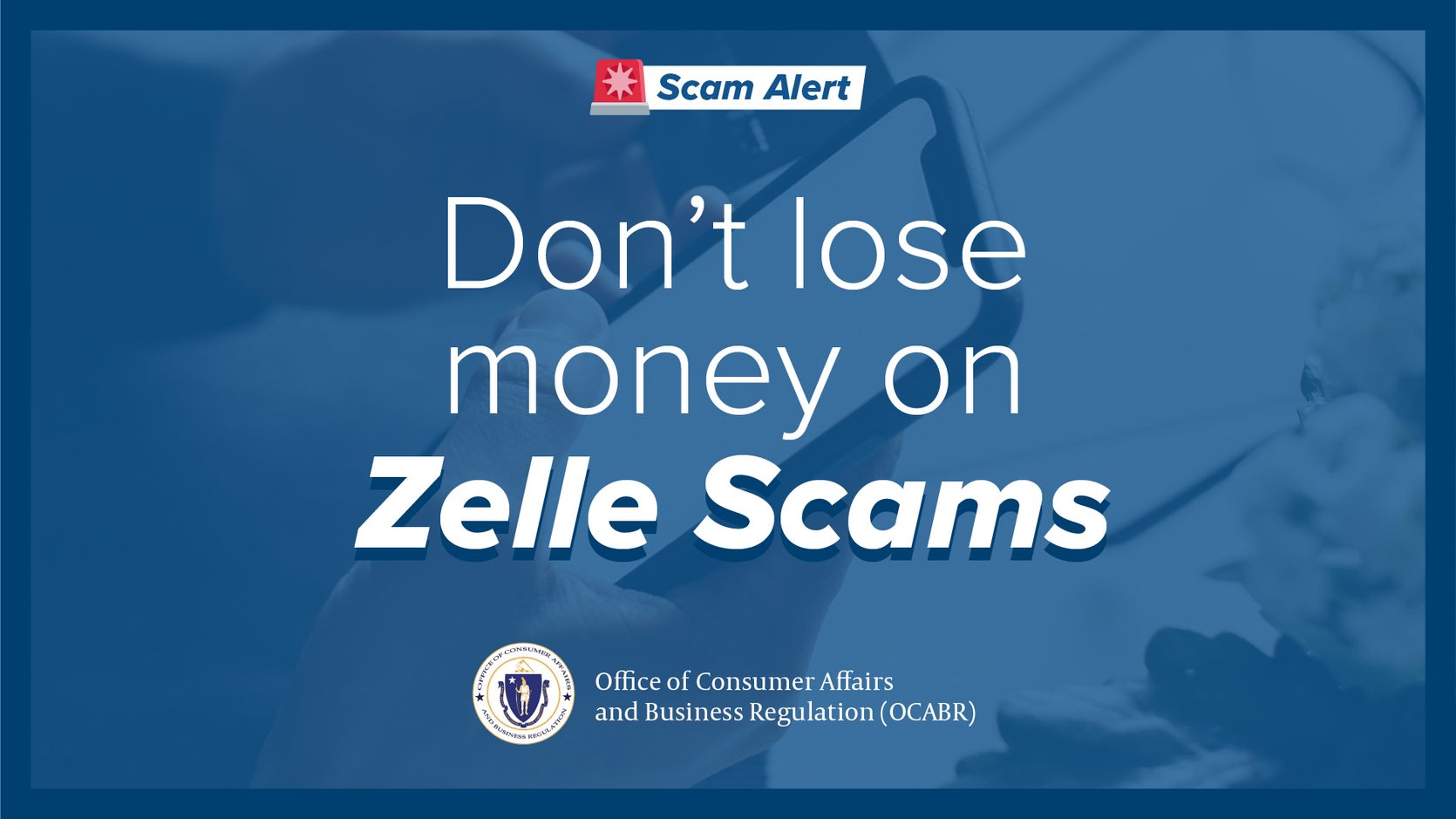- Office of Consumer Affairs and Business Regulation

As consumers we are always looking for products and services that are convenient or provide instant gratification. Peer-to-peer payment applications provide both of those features, so it is no surprise that the use of these programs are on the rise. Scammers are capitalizing on the growing prevalence of apps such as Zelle and Venmo, by using social engineering, phishing, and other avenues to take advantage of unsuspecting users.
Contactless payment apps typically facilitate instantaneous payment, make scamming much easier because consumers have no control over their money once it has been authorized for immediate transfer to someone else’s account. Zelle, in particular, has seen a boom in its user base, with users sending almost $490 billion through via nearly 1.8 billion payments in 2021.
Zelle specifically stipulates that it "doesn’t offer a protection program for authorized payments. " With a consistently growing user base and no liability regarding scams, it is important when using Zelle to ensure that the recipient’s U.S. mobile number and email address are accurate and appropriate to your intended payee.
In addition to confirming your recipient’s contact information is correct, there are other steps you can take to ensure your account stays safe. In support of our mission to empower consumers, the Office of Consumer Affairs and Business Regulation (OCABR) compiled the below red flags to help you spot a potential payment application scam:
- Requests for money through Zelle or Venmo from businesses that do not traditionally accept this form of payment. Consumers recently reported imposter scams phone calls and text messages seeking payment for late utility bills. Don’t remit funds for any late bills via Zelle or Venmo; it’s a scam.
- Suspicious communication from your financial institution including links that require you to verify personal information and/or passwords. Don’t click the link or provide sensitive details; it’s a scam.
- Unsolicited messages stating that you won a prize or lottery sweepstakes with next steps of verifying your banking information or transferring money. Don’t fall for a situation that sounds too good to be true; it’s a scam.
- Unprompted messages from a “friend” asking that you return money sent to you in error. These messages may even include screenshots of the fund transfer to pressure you into paying them back. Don’t pay anyone you don’t know or can’t confirm their identity; it’s a scam.
It is important to note that while the terms "fraud" and "scam" are often used interchangeably, the words hold different meanings in the world of financial crimes. Understanding the difference between fraud and scam incidents is key to staying safe from both threats.
- Fraud occurs when you are not involved with a transaction—for example, a hacker gains access to your bank account and makes an unauthorized payment. In the case of fraud, you are generally able to recoup funds due to your un-involvement with the transaction.
- Scams refer to instances in which you are actively involved—for example, sending or transferring someone money for a product but never receiving it. Despite not receiving what you paid for, you authorized the payment to be deducted from your account. This important distinction is what makes scam charges more difficult to dispute than fraudulent charges.
The Division of Banks, the state’s primary financial services regulator, oversees state-chartered financial institutions and non-depository licensees such as domestic wire transmitters. However, there is limited oversight for money transfer applications like Venmo and Zelle.
If you believe you are a victim of a peer-to-peer payment application scam, first report it to the application administrator and your financial institution. You should also report the payment scam to the Federal Bureau of Investigation’s (FBI) Internet Crime Complaint Center or call the FBI’s toll-free fraud hotline at 833- FRAUD-11. Additionally, the Office of Consumer Affairs and Business Regulation offers resources for individuals dealing with identity theft and scams.

